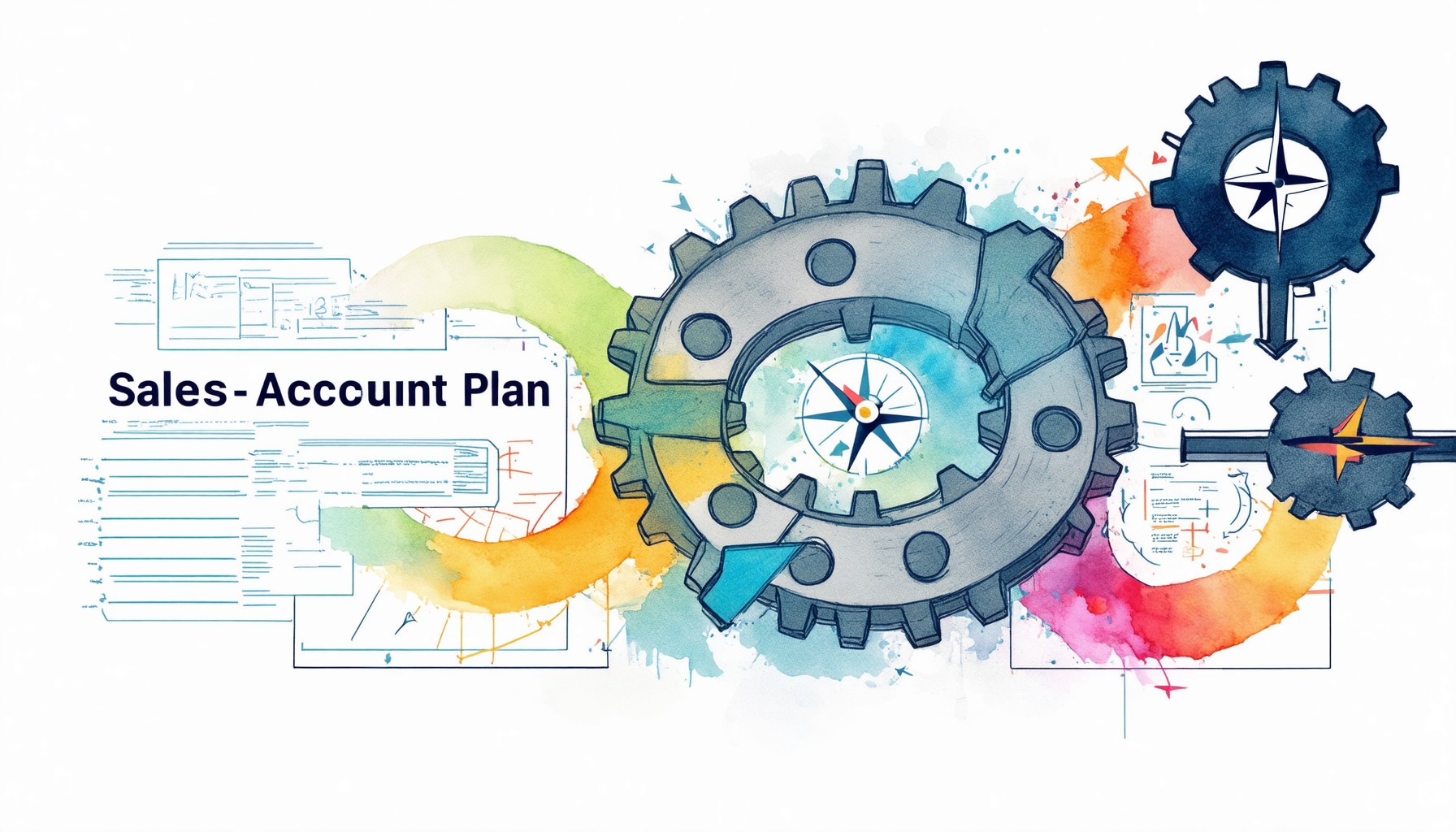Key Takeaways
- Precision Targeting: Account-Based Marketing (ABM) focuses on high-value customer accounts, ensuring marketing efforts are tailored and effective.
- Higher ROI: ABM strategies deliver a significantly higher return on investment compared to traditional marketing methods, making them cost-effective for B2B companies.
- Personalized Engagement: Custom content and communication strategies enhance customer relationships, leading to increased loyalty and retention.
- Cross-Department Collaboration: Successful ABM requires alignment between marketing, sales, and customer success teams, ensuring a unified approach to achieving business goals.
- Data-Driven Insights: Leveraging technology and analytics allows businesses to refine their strategies and optimize marketing efforts based on real-time data.
- Scalable Solutions for Startups: Automated ABM tools enable startups to manage their marketing efficiently, allowing for growth without overwhelming resources.
Welcome to the world of account-based marketing B2B, where precision meets strategy to drive unparalleled business growth. In this article, we will delve into the essentials of account-based marketing, exploring its definition, significance, and the myriad benefits it offers for B2B companies. We will also examine the four primary types of B2B marketing, including content marketing and email marketing strategies, providing you with a comprehensive understanding of how these approaches can enhance your marketing efforts. Through real-world account-based marketing examples, we will highlight successful case studies that showcase the effectiveness of ABM in action. Additionally, we will clarify the relationship between account management and B2B marketing, distinguishing between traditional marketing and ABM, and discussing the role of social media platforms like Twitter in your B2B strategies. Finally, we will introduce essential tools and strategies for implementing automated and scalable account-based B2B marketing for startup companies, ensuring you are equipped for long-term growth. Join us as we unlock the potential of account-based marketing for B2B and guide you towards increased efficiency in your business.
Understanding the Basics of Account-Based Marketing
Account-based marketing (ABM) is a strategic approach in B2B marketing that focuses on targeting specific high-value customer accounts rather than a broader audience. This method treats each account as a unique market, allowing businesses to deliver highly personalized experiences and tailored content that resonate with the specific needs and pain points of each account.
Definition and Importance of Account-Based Marketing
Key components of account-based marketing include:
- Identification of Target Accounts: Businesses identify and prioritize high-value accounts based on criteria such as revenue potential, strategic fit, and likelihood of conversion. This targeted approach ensures that marketing resources are allocated efficiently.
- Personalized Content Creation: ABM emphasizes the development of customized content that speaks directly to the interests and challenges of the target accounts. This can include personalized emails, case studies, whitepapers, and tailored landing pages.
- Cross-Departmental Collaboration: Successful ABM requires collaboration between marketing, sales, and customer success teams. This alignment ensures that messaging is consistent and that all teams are working towards the same goals.
- Use of Technology and Data Analytics: Leveraging technology, such as CRM systems and marketing automation tools, is crucial for tracking engagement and measuring the effectiveness of ABM campaigns. Data analytics helps refine strategies and improve targeting.
- Engagement Strategies: Engaging target accounts through various channels—such as social media, webinars, and personalized outreach—enhances the likelihood of conversion. Utilizing tools like chatbots can facilitate real-time engagement and provide immediate responses to inquiries.
- Measurement and Optimization: Continuous measurement of ABM efforts is essential. Key performance indicators (KPIs) such as account engagement, pipeline growth, and revenue generated from targeted accounts should be monitored to optimize future campaigns.
According to a study by the ITSMA, 87% of marketers say that ABM delivers a higher ROI than other marketing strategies, highlighting its effectiveness in driving business growth. By focusing on the specific needs of high-value accounts, businesses can foster deeper relationships and ultimately drive more significant revenue.
Key Benefits of Implementing ABM in B2B
Implementing account-based marketing in B2B offers several key benefits:
- Higher ROI: As mentioned, ABM has been shown to deliver a higher return on investment compared to traditional marketing methods, making it a cost-effective strategy for targeting high-value accounts.
- Improved Customer Relationships: By personalizing content and engagement strategies, businesses can build stronger relationships with their target accounts, leading to increased loyalty and retention.
- Enhanced Alignment Between Teams: ABM fosters collaboration between marketing and sales teams, ensuring that everyone is aligned on goals and messaging, which can lead to more effective campaigns.
- Better Resource Allocation: By focusing on high-value accounts, businesses can allocate their marketing resources more efficiently, maximizing their impact and minimizing waste.
- Data-Driven Insights: The use of technology and data analytics in ABM allows businesses to gain valuable insights into customer behavior and preferences, enabling continuous improvement of marketing strategies.
For further insights into the effectiveness of ABM and its implementation, refer to resources from the Brain Pod AI and HubSpot’s comprehensive guides on B2B marketing strategies.

What is Account-Based Marketing in B2B?
Understanding the Basics of Account-Based Marketing
Account-Based Marketing (ABM) is a strategic approach that focuses on targeting specific accounts rather than a broad audience. This method is particularly effective in the B2B landscape, where understanding the unique needs of each account can lead to more personalized and impactful marketing efforts. By aligning marketing and sales teams, ABM allows businesses to tailor their strategies to the specific challenges and goals of their target accounts, ultimately driving higher engagement and conversion rates.
Definition and Importance of Account-Based Marketing
At its core, account based marketing b2b is about creating customized marketing campaigns for individual accounts. This approach is crucial because it recognizes that different businesses have different needs, and a one-size-fits-all strategy often falls short. Implementing ABM can lead to improved customer relationships, increased revenue, and a more efficient allocation of marketing resources. In fact, companies that excel at ABM generate 208% more revenue from their marketing efforts compared to those that do not.
Key Benefits of Implementing ABM in B2B
There are several key benefits to implementing account-based marketing in B2B environments:
- Enhanced Targeting: ABM allows businesses to focus their efforts on high-value accounts, ensuring that marketing resources are used effectively.
- Improved ROI: By concentrating on specific accounts, companies often see a higher return on investment, as campaigns are more relevant and personalized.
- Stronger Alignment Between Sales and Marketing: ABM fosters collaboration between sales and marketing teams, leading to a unified approach that enhances overall effectiveness.
- Increased Customer Retention: Personalized marketing efforts can lead to stronger relationships with clients, resulting in higher retention rates.
What are the Four Types of B2B Marketing?
Exploring the Four Types of B2B Marketing
Understanding the different types of B2B marketing is essential for developing a comprehensive strategy. Here are the four primary types:
Content Marketing in B2B
Content marketing involves creating and distributing valuable, relevant content to attract and engage a target audience. Effective strategies include blog posts, whitepapers, case studies, and infographics. According to the Content Marketing Institute, 70% of B2B marketers are actively investing in content marketing, highlighting its importance in building brand authority and generating leads. For more insights on enhancing your content strategy, check out our guide on Building a Sales Pipeline.
Email Marketing Strategies for B2B
Email marketing is a powerful tool for B2B communication, allowing businesses to nurture leads and maintain relationships with clients. Personalized email campaigns can significantly increase engagement rates. A study by HubSpot found that segmented email campaigns can lead to a 760% increase in revenue. To learn more about effective email strategies, consider exploring our resources on Customer Engagement Programs.
Real-World Account-Based Marketing Examples
Account-based marketing (ABM) is a powerful strategy that focuses on targeting specific high-value accounts rather than casting a wide net. This approach allows businesses to create personalized marketing strategies that resonate with the unique needs of each account. For instance, a software company might identify a list of key enterprise clients they want to engage. They would then develop tailored content, such as case studies, whitepapers, and personalized emails, that address the unique challenges and needs of each account. This targeted effort not only enhances engagement but also increases the likelihood of conversion by demonstrating a deep understanding of the client’s business.
Recent studies indicate that ABM can lead to a 208% increase in marketing revenue (source: SiriusDecisions). Additionally, incorporating tools like personalized chatbots can further enhance customer interaction and streamline communication, making the marketing efforts more effective. By utilizing data analytics, companies can track engagement metrics and refine their strategies in real-time, ensuring that their ABM efforts are both efficient and impactful (source: HubSpot).
In summary, account-based marketing is a strategic approach that focuses on personalized engagement with specific accounts, leveraging tailored content and advanced analytics to drive results.
Successful Case Studies of ABM in Action
Several companies have successfully implemented account-based marketing strategies, showcasing the effectiveness of this approach. For example, a leading technology firm utilized ABM to target Fortune 500 companies. By creating customized marketing campaigns that included personalized emails and targeted ads, they achieved a significant increase in engagement rates and conversions. The firm reported a 50% increase in sales from the targeted accounts within just six months.
Another notable example is a B2B service provider that focused on the healthcare sector. They developed a comprehensive ABM strategy that included tailored content and direct outreach to decision-makers within hospitals and clinics. This approach not only improved their brand visibility but also resulted in a 40% increase in new client acquisitions. These case studies illustrate how effective account-based marketing can be when executed with precision and a clear understanding of the target audience.
Innovative Account-Based Marketing Examples B2B
Innovation in account-based marketing is crucial for staying ahead in the competitive B2B landscape. One innovative example is the use of AI-driven chatbots to enhance customer engagement. By integrating an AI Chat Assistant into their marketing strategy, a financial services company was able to provide real-time support and personalized recommendations to potential clients. This not only improved user experience but also increased lead conversion rates significantly.
Additionally, companies are leveraging data analytics to refine their ABM strategies continuously. For instance, a SaaS provider utilized advanced analytics to identify key engagement metrics, allowing them to tailor their marketing efforts dynamically. This data-driven approach led to a more responsive and effective ABM strategy, ultimately driving higher ROI.
The Relationship Between Account Management and B2B Marketing
Yes, account management is a crucial aspect of B2B marketing. It involves strategic efforts to nurture and expand relationships with existing clients, ensuring their needs are met while maximizing the value derived from these accounts. Here are key components of B2B account management:
- Relationship Building: Account managers focus on developing strong, long-term relationships with clients. This involves regular communication, understanding client needs, and providing tailored solutions.
- Value Maximization: The primary goal of account management is to enhance the value of existing accounts. This can be achieved through upselling and cross-selling additional products or services that align with the client’s business objectives.
- Client Retention: Effective account management strategies contribute to higher client retention rates. By addressing concerns promptly and demonstrating a commitment to client success, account managers can foster loyalty.
- Feedback Loop: Account managers serve as a bridge between clients and the company, gathering feedback that can inform product development and marketing strategies. This ensures that the company remains responsive to market needs.
- Data-Driven Insights: Utilizing data analytics tools, account managers can track client engagement and satisfaction levels. This data helps in making informed decisions that enhance the client experience.
- Collaboration with Sales and Marketing: Account management works closely with sales and marketing teams to align strategies and ensure a cohesive approach to client engagement.
Incorporating modern tools like Messenger Bots can enhance communication efficiency, allowing account managers to provide timely responses and support to clients. By leveraging automation, businesses can improve client interactions while maintaining a personal touch.
How Account Management Enhances B2B Marketing Efforts
Account management plays a pivotal role in enhancing B2B marketing efforts by ensuring that marketing strategies are aligned with client needs. Here’s how:
- Personalized Marketing: Account managers can provide insights into client preferences, enabling tailored marketing campaigns that resonate with specific audiences.
- Increased Engagement: Regular interactions foster deeper engagement, allowing businesses to stay top-of-mind and relevant to their clients.
- Strategic Alignment: By understanding client goals, account managers can help align marketing initiatives with the broader business objectives of their clients.
- Performance Tracking: Account managers can monitor the effectiveness of marketing campaigns, providing feedback that can refine future strategies.
For more on how to effectively manage accounts in a B2B context, consider exploring resources from Brain Pod AI, which offers tools and insights tailored for enhancing client relationships and marketing strategies.

Distinguishing Between Traditional Marketing and ABM
The difference between marketing and account-based marketing (ABM) lies primarily in their approach and execution strategies. Understanding these distinctions is crucial for businesses aiming to optimize their marketing efforts and drive growth.
Key Differences in Approach and Strategy
- Targeting Strategy:
- Traditional Marketing: This approach employs a broad strategy, aiming to reach a wide audience through mass marketing techniques. It often utilizes channels like television, radio, and social media to promote products or services to the general public.
- Account-Based Marketing (ABM): In contrast, ABM focuses on a select group of high-value accounts. It involves personalized marketing campaigns tailored to specific companies or individuals, taking into account their unique needs and characteristics. This method is particularly effective in B2B environments where understanding the buyer’s journey is crucial.
- Personalization:
- Traditional Marketing: Campaigns are typically generic, lacking personalization. The messaging is designed to appeal to a broad demographic rather than addressing the specific pain points of individual customers.
- ABM: ABM strategies leverage data analytics to create highly personalized content and communications. This includes understanding the decision-makers within target accounts and crafting messages that resonate with their specific challenges and goals.
- Measurement and ROI:
- Traditional Marketing: Success is often measured through metrics such as reach, impressions, and overall engagement, which can be less directly tied to revenue generation.
- ABM: ABM emphasizes measurable outcomes tied directly to sales. Metrics such as account engagement, pipeline growth, and revenue from targeted accounts are prioritized, allowing for a clearer assessment of ROI.
- Resource Allocation:
- Traditional Marketing: Resources are spread across various channels to maximize reach, often resulting in diluted efforts.
- ABM: Resources are concentrated on a smaller number of accounts, allowing for deeper engagement and more effective use of marketing budgets.
- Technology Utilization:
- Traditional Marketing: While technology plays a role, traditional marketing often relies on conventional media and less sophisticated tools.
- ABM: ABM heavily utilizes advanced technologies, including CRM systems, marketing automation tools, and data analytics platforms, to identify target accounts and tailor marketing efforts effectively.
When to Use Account-Based Marketing vs. Traditional Marketing
Choosing between traditional marketing and account-based marketing depends on your business goals and target audience. If your focus is on reaching a broad market with general messaging, traditional marketing may be suitable. However, for B2B companies targeting specific high-value accounts, account-based marketing is the more effective strategy. By concentrating resources on a select group of accounts, businesses can enhance engagement and drive measurable results.
Account-Based Marketing Tools for Enhanced Efficiency
Implementing account-based marketing (ABM) for B2B requires the right tools to streamline processes and maximize efficiency. By utilizing specialized software, businesses can enhance their ABM strategies, ensuring targeted outreach and effective engagement with key accounts. Here are some essential tools that can significantly improve your ABM efforts:
Essential Tools for Implementing ABM Strategies
- CRM Software: Customer Relationship Management (CRM) systems like Salesforce or HubSpot are crucial for managing interactions with targeted accounts. They help track engagement, monitor sales pipelines, and analyze customer data to refine marketing strategies.
- Marketing Automation Platforms: Tools such as Marketo or Pardot enable businesses to automate marketing tasks, segment audiences, and deliver personalized content to specific accounts, enhancing the overall effectiveness of ABM campaigns.
- Data Analytics Tools: Utilizing platforms like Google Analytics or Tableau can provide insights into account behavior and campaign performance, allowing for data-driven decision-making and optimization of marketing strategies.
- Social Media Management Tools: Tools like Hootsuite or Buffer can help manage social media outreach, enabling B2B companies to engage with target accounts effectively and monitor conversations relevant to their industry.
How Automated and Scalable Account-Based B2B Marketing for Startup Companies Can Drive Success
For startup companies, adopting automated and scalable account-based B2B marketing strategies can lead to significant growth. By leveraging automation tools, startups can efficiently manage their marketing efforts without overwhelming their limited resources. Here’s how:
- Streamlined Processes: Automation reduces manual tasks, allowing teams to focus on strategy and creative aspects of marketing. This efficiency is vital for startups looking to maximize their impact with minimal resources.
- Scalable Solutions: As startups grow, their marketing needs evolve. Automated tools can easily scale to accommodate increasing demands, ensuring that marketing efforts remain effective as the business expands.
- Enhanced Targeting: Automated systems can analyze data to identify high-value accounts, enabling startups to tailor their marketing efforts specifically to those targets, increasing the likelihood of conversion.
- Cost-Effectiveness: By utilizing automated tools, startups can reduce costs associated with manual marketing efforts, allowing for reinvestment into other critical areas of the business.
Account-Based Marketing Tools for Enhanced Efficiency
In the realm of account-based marketing B2B, leveraging the right tools is essential for maximizing efficiency and achieving targeted outcomes. These tools not only streamline processes but also enhance the effectiveness of marketing strategies tailored to specific accounts. Here, we explore essential tools for implementing ABM strategies and how automated and scalable account-based B2B marketing can drive success, especially for startup companies.
Essential Tools for Implementing ABM Strategies
To effectively execute account-based marketing for B2B, businesses need to utilize a variety of tools that facilitate personalized engagement and data-driven decision-making. Some of the most effective tools include:
- CRM Software: Tools like Salesforce or HubSpot enable businesses to manage customer relationships and track interactions with targeted accounts, ensuring personalized communication.
- Marketing Automation Platforms: Solutions such as Marketo or Pardot automate marketing tasks, allowing for tailored messaging and follow-ups based on user behavior.
- Data Analytics Tools: Platforms like Google Analytics and Tableau provide insights into account performance, helping marketers refine their strategies based on data.
- Social Media Management Tools: Tools like Hootsuite or Buffer help manage and analyze social media interactions with targeted accounts, enhancing engagement.
These tools collectively enhance the efficiency of account-based marketing B2B efforts, ensuring that businesses can effectively reach and engage their desired audience.
How Automated and Scalable Account-Based B2B Marketing for Startup Companies Can Drive Success
For startup companies, implementing automated and scalable account-based B2B marketing strategies is crucial for growth and sustainability. Automation allows startups to efficiently manage their marketing efforts without the need for extensive resources. Here’s how:
- Cost-Effective Lead Generation: Automated tools can streamline lead generation processes, allowing startups to focus on nurturing relationships with high-value accounts.
- Personalized Marketing Campaigns: Automation enables the creation of personalized campaigns that resonate with specific accounts, increasing engagement and conversion rates.
- Scalability: As startups grow, automated systems can easily scale to accommodate increased marketing efforts without significant additional investment.
- Data-Driven Insights: Automated tools provide real-time analytics, allowing startups to adjust their strategies based on performance metrics and account behavior.
By embracing automated and scalable account-based B2B marketing solutions, startups can enhance their efficiency and drive long-term success in a competitive landscape.




